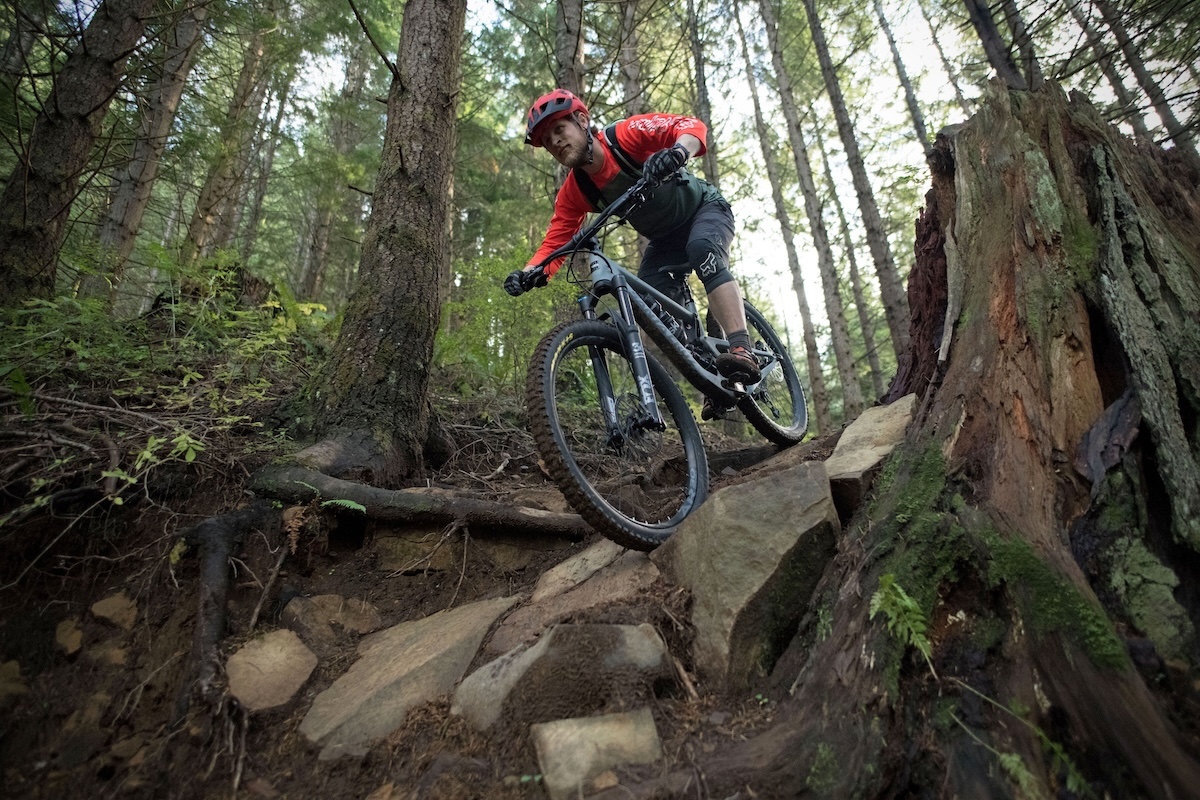
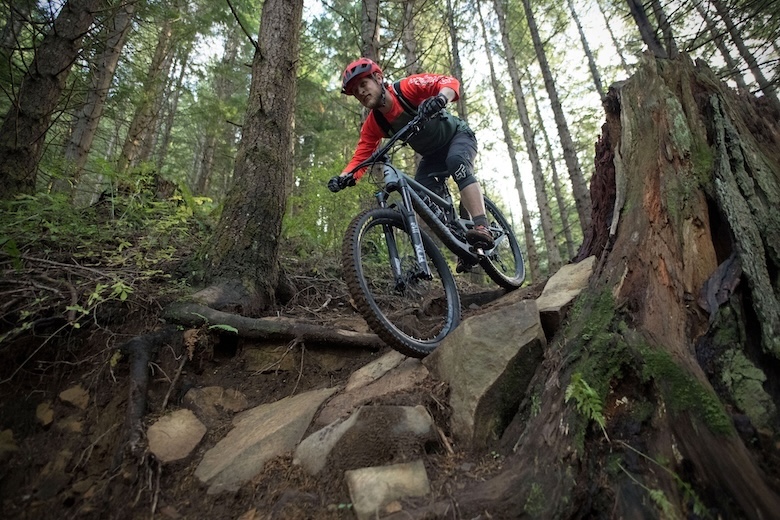
For many mountain bikers, understanding the background, history, and ethos of a company has a major impact on the purchase of a new rig. However, with so many brands to choose from, it can be difficult to navigate the landscape and find a good match. From value-oriented companies like Co-op Cycles to high-end, carbon-only players like Yeti, the brands below stand out to us as the top in the business—after all, we’ve spent a lot of time on the trails testing bikes and soliciting input from fellow riders. Below we break down some of the most well-known mountain biking brands—along with some strong but lesser-known players—including a brief history on each brand, each company’s most popular models, and what sets them apart from the competition.
We have plenty more advice to help you choose the right bike and gear, including tips on how much to spend on a mountain bike and our team’s tested recommendations of the best mountain bike helmets. To dig deeper, check out our mountain biking gear reviews.
Editor’s note: This article was updated on June 19, 2025, to add information regarding new models and business acquisitions, and to add Revel Bikes to our Small but Noteworthy section.
Location: Morgan Hill, Calif.
Popular models: Stumpjumper and Turbo Levo
What we like: Quality, proven bikes for every type of rider at nearly every price point.
What we don't: A bit more cutthroat than other bike companies we’ve seen.
Founded in the early 1970s, Specialized can be credited with catalyzing the explosion of mountain biking in the United States. Although their bikes are manufactured in Taiwan (which is common within the cycling industry), the brand’s roots are firmly planted in California. A staple within their lineup—and a model many may have heard of—is the Stumpjumper. Introduced in 1981, the Stumpjumper was the first mass-produced mountain bike in the world and the company still offers more than a dozen versions of the full-suspension design under the same name today. And the brand's wider collection covers everything from entry-level mountain bikes to gravel, road, and electric bikes, meaning there’s an option for just about everyone.
.jpg)
The Stumpjumper may have paved the way, but Specialized continues to innovate year after year. For example, while many U.S. brands are just now launching e-bikes, Specialized has been leading the charge (no pun intended) with their Turbo Levo for years, and a couple years ago went the next step to partner with non-profit Call2Recycle to create a system for recycling e-bike batteries sold in the USA—even those from other brands. The company also focuses on developing unique solutions to common problems—like creating its SWAT Technology (short for “Storage, Water, Air, and Tools”), which includes tool and tube storage built into some of their frames.
However, Specialized still is a major brand and has had its fair share of hiccups. Most notorious was a 2013 instance in which the company sent a cease-and-desist letter to a small café and bike shop in Canada that shared the same name as one of their road bike models, Roubaix (which also is the name of a popular biking destination in France). They eventually reversed course and saved face, but it was a good lesson that the biking community cares and public relations matter.
Location: Waterloo, Wis.
Popular models: Fuel EX and Supercaliber
What we like: No-nonsense company with an expansive range of models and build kits; lifetime warranty on their frames.
What we don't: Not as innovative as many other brands on the list.
One of the biggest brands in the business, Wisconsin-based Trek produces top-notch bikes across almost every price point. And while Trek is perhaps best known for its focus on road riding (made especially popular by Lance Armstrong in many Tour de France competitions), their mountain biking lineup is equally formidable. One of their most well-known models in this category is the Trek Fuel EX, a longstanding offering that has been lauded as a jack of all trades. And despite numerous changes over the past 10+ years to its geometry and design—and the introduction of an e-bike version a few years back—Trek has done a great job retaining its do-it-all personality.
.jpg)
While not necessarily at the forefront of innovation, Trek has always stayed relevant and received consistently positive feedback from riders across the industry. This is, in part, because Trek has stayed true to its roots by sponsoring and supporting quality athletes like Emily Batty, Brandon Semenuk, Rachel, Dan, and Gee Atherton, Reece Wilson, and Loris Vergier, just to name just a few. Additionally, Trek has always stood behind their products with a lifetime warranty on frames (which I’ve seen them honor firsthand). It’s also worth mentioning that Trek is one of the few big brands that allows you to fully customize your bike—we’ve spent more time than we’d like to admit choosing the perfect color combinations on their Project One online bike builder and daydreaming about our next setup.
Location: Santa Cruz, Calif.
Popular models: 5010, Bronson, and Furtado
What we like: Boutique feel, top-quality frames, and standout attention to detail; lifetime warranty on frames as well as pivot bearings, carbon handlebars, and carbon reserve rims.
What we don't: Very expensive.
Santa Cruz is a bit of an anomaly in the cycling world. With only 16 dirt-focused models to choose from (including a few e-MTB lines and a gravel grinder), the brand has been able to establish themselves as a major player in a relatively short amount of time (the company was founded in 1994 and launched the women’s Juliana sub-brand in 1999). Perhaps even more notable, however, is the fact that they’ve been able to grow significantly large without sacrificing that boutique-brand feel. This impressive balancing act has led to a number of popular models over the years. Notable additions to their lineup include the Nomad, Bronson (now made in a mixed-wheel setup), and our all-around pick for the best trail mountain bike, the Hightower. Longtime riders also likely remember the Bullit (of note: The Bullit’s name is back in the form of an e-bike), Driver 8, VP Free, and Heckler (also now available in an e-bike version) with fondness. Take a look around the parking lot, and there’s a good chance that at least 25% of the riders are on one of the Santa Cruz models listed above.
.jpg)
From a rider’s perspective, there’s a lot to like about Santa Cruz. Like many other companies, Santa Cruz offers a lifetime warranty on their frames. However, unlike the competition, the brand takes it one step further by applying that same warranty to all their bearings (if you ride in the muck regularly, you’ll come to appreciate this). Santa Cruz’s bikes also are very thoughtfully designed—you won’t find any subpar components, and you can truly tell the designers are passionate about the sport. The big downside to purchasing a Santa Cruz bike is cost. In the end, you get what you pay for, but value-oriented options like Giant, Marin, and Diamondback often fit the bill better for most budgert-conscious riders.
.jpg)
Location: Taichung, Taiwan
Popular models: Trance and Talon
What we like: Extensive manufacturing experience and very competitive prices.
What we don't: Not a leader at the high end of the market; some of their designs have dated geometries.
Founded in 1972, Taiwan-based Giant Manufacturing produces bike frames for many of the world’s top cycling brands. While this might come as a surprise, the fact is that there are only a handful of factories that make the vast majority of bikes, and Giant Manufacturing is one of the larger sources. Their in-house bike brand—known simply as Giant—started up a little later in 1981. And just as Specialized has the Stumpjumper, it’s hard to talk about Giant without also mentioning the Trance line, which has been their go-to trail/all-mountain bike since its inception more than 15 years ago. While it’s by no means at the pinnacle of progressive geometry (though the Trance X did get a big update in 2024), the Trance is a solid choice for riders who want one bike that can do it all.
.jpg)
Trek and Specialized get the edge in terms of worldwide brand recognition, but Giant is a major player in the industry. Many times when we help someone search for a new bike, we end up coming back to Giant for their competitive pricing and solid reputation. While their bikes might not always push the envelope in tech and aggressive geometries, it’s simply hard to beat the value. And finally, it’s worth mentioning that Giant launched a sub-brand, Liv Cycling, in 2008, which is a women’s-specific cycling brand that features a comprehensive collection of bikes and apparel designed for women and by women. In our experience, Liv products meet the same standard of quality we expect from Giant and can be a great option for everyone from beginners to experienced female riders.
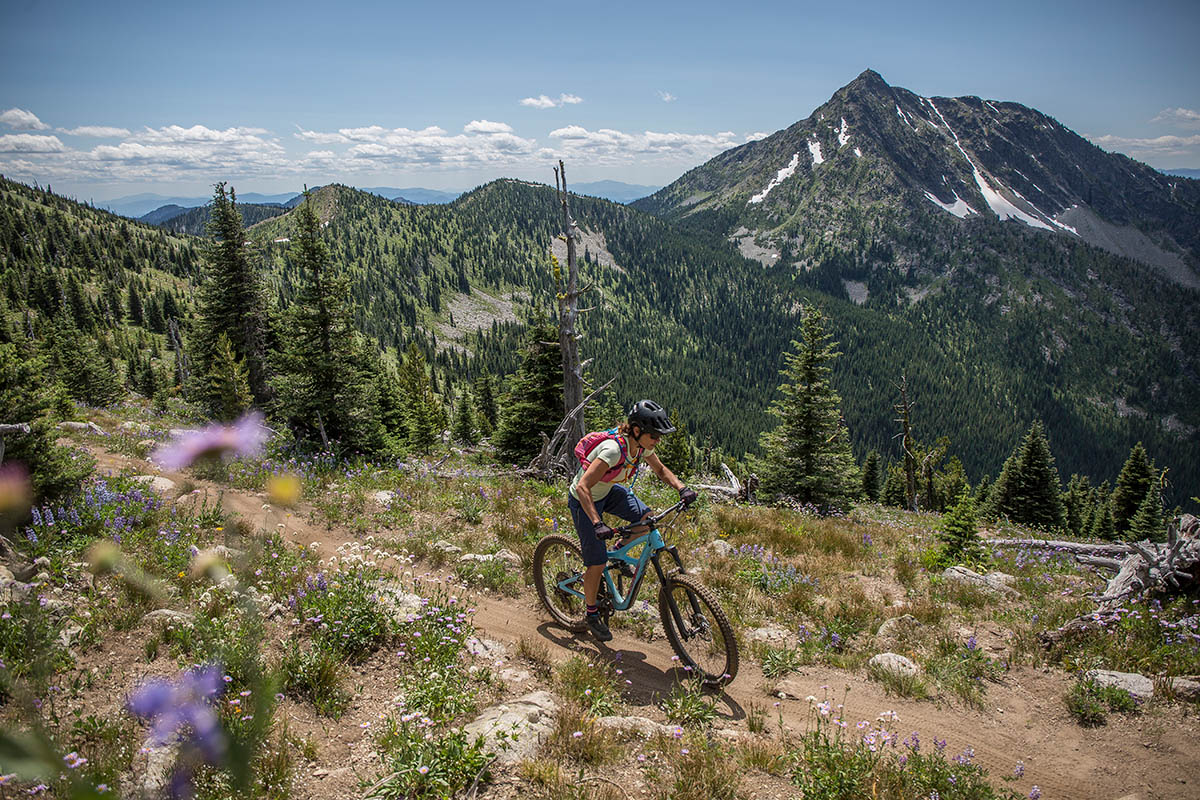
Location: Golden, Colo.
Popular models: SB140 and SB160
What we like: Highly desirable, fantastic-looking bikes that climb better than most.
What we don't: One of the most expensive brands out there.
If there’s one bike brand that riders lust over above all others, it’s Yeti. Founded in 1985 and currently based in Golden, Colo., this now-rider-owned company has a longstanding history in racing. The brand has been known to seek out younger talent and foster them into formidable riders (some of the most well-known examples include John Tomac, Jared Graves, Richie Rude, Aaron Gwin, and Juliana Furtado). In terms of popular models, Yeti has mixed things up recently with their aggressive geometry and unique, varying-front-and-rear-wheel travel of the SB120, SB140, SB160, and SB165 models.
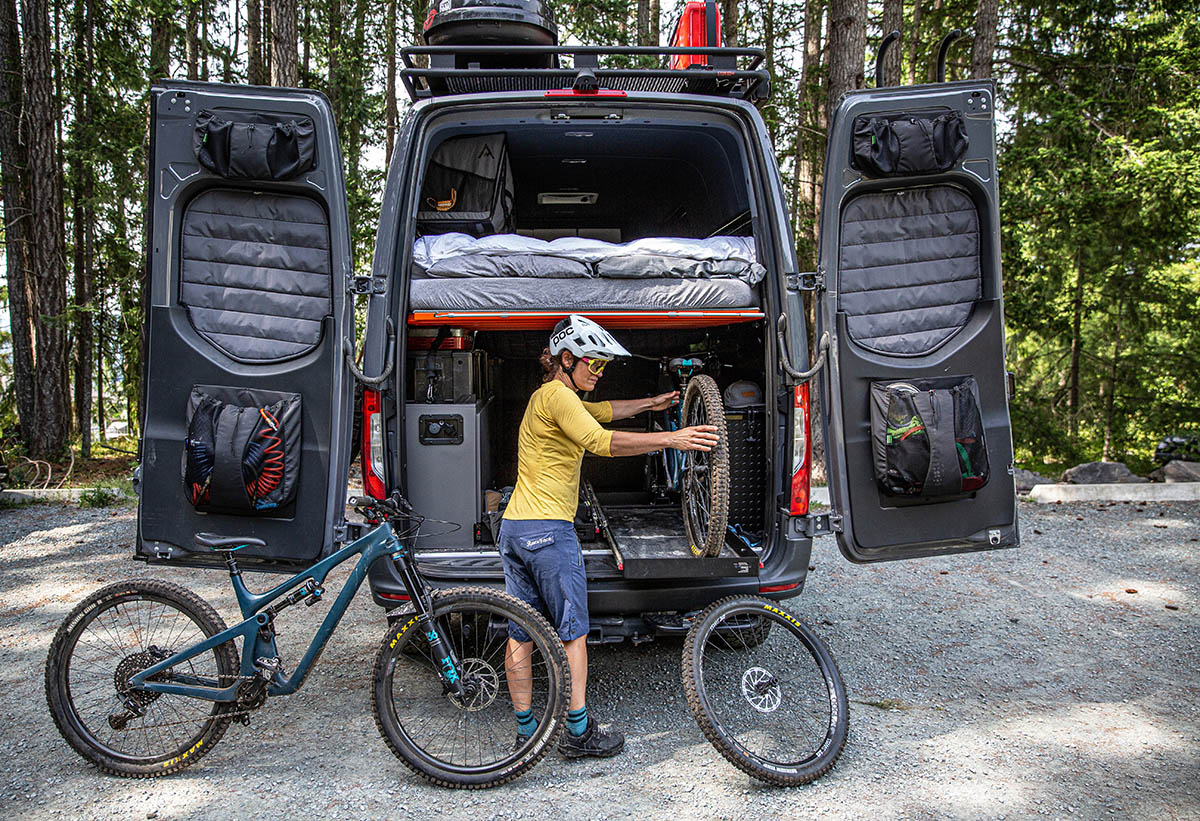
Yeti bikes are typically known for at least one of three things: the company’s vibrant “Yeti Turquoise” frame color, the unique rear suspension platform known as Switch Infinity, and high cost. While their bikes undoubtedly are well made, and we appreciate the company’s clear focus on riders, there’s a reason we’ve never owned a Yeti bike: They're just so darn expensive. Comparing just the prices of bike frames (not complete bikes), Yeti typically comes in hundreds of dollars more than most other brands. For instance, the SB160 frame will set you back a whopping $4,800, while Ibis’ similarly capable Ripmo comes in at $3,699. However, if you can stomach the steep cost, you’ll have one of the most enviable setups on the trail.
Location: Santa Cruz, Calif.
Popular models: Ripmo and Ripley
What we like: Quality, responsive bikes with relatively reasonable pricing.
What we don't: Not the best aesthetics.
Ibis Cycles, a boutique brand that tends to fly under the radar, is well regarded within the MTB community for producing top-notch bikes. Founder Scot Nicol started Ibis in his garage in 1981, and the brand was privately owned until 2000, at which point Nicol sold it to an investment company. Less than two years later, Ibis went bankrupt and closed its doors. However, in 2005, the company reemerged and launched their popular Mojo carbon full-suspension mountain bike, which remained a staple in their lineup for years. A few years back, Ibis went through a rebrand with a new logo and refreshed their popular Ripmo and Ripley models while they were at it, mainly updating the swingarms of both bikes. In July of 2024, they redesigned these two staples again with totally new frames. Another interesting tidbit: The Ripmo is designed to fit riders as short as 5’0”, which isn’t common among bikes with 29-inch wheels.
Ibis focuses their efforts on 10 bikes: eight full-suspension models (including the made-in-the-USA Exie), one hardtail (the DV9), and one gravel grinder (the Hakka MX). Impressively, they are also one of the more reasonably priced boutique brands—for example, the popular Ripley AF's frame clocks in at $2,199. Also of note: Ibis recently introduced an even more affordable version of their Exie frame—the “Exie for all”—which weighs only slightly more and slashes a whopping $3,000 off the price of the original version by being handbuilt in Vietnam instead of the U.S. Our only complaint—and it's entirely subjective—is that Ibis bikes aren't the most beautiful around, although opinions vary a lot about their full-suspension styling. They also used to have a fairly short seven-year warranty, although that was upgraded to a lifetime warranty in 2022 (bikes purchased before then fall under the previous warranty).
.jpg)
Location: Tempe, Ariz.
Popular models: Firebird and Trail 429
What we like: DW link suspension design is efficient on the climbs yet very capable on the descents.
What we don't: Expensive and some models have polarizing looks.
While not steeped in history like most of the other brands on this list, relative newcomer Pivot (started in 2007) has already made a name for themselves. But considering its founder, mountain biking legend Chris Cocalis, this rise to popularity doesn’t come as much of a surprise. Headquartered in Tempe, Ariz., Pivot is known for pushing out high-quality carbon bikes covering a variety of disciplines. Popular models include their long-travel 29er, the Firebird 29, as well as the time-tested Mach 4. In addition, Pivot has another 14 models to choose from that cover everything from gravel/cyclocross to fat biking and e-MTB.
Similar to other boutique brands’ offerings, Pivot bikes don’t come cheap. While their frames are certainly standouts when it comes to craftsmanship and design, it can be hard to justify such a high price—for reference, their cheapest complete mountain bike comes in at over $5,000. Not to mention, Pivot only provides a 10-year warranty (as opposed to the lifetime warranty you get with Santa Cruz). That said, Pivot places an undeniably strong focus on quality, and it’s unlikely you’ll be disappointed.
.jpg)
Location: Bellingham, Wash.
Popular models: The Offering LS and The Following LS
What we like: Focus on having fun and excellent downhill performance.
What we don't: Small bike lineup.
Evil Bikes is one of the most intriguing brands to make our list. The Bellingham-based company takes a different approach to designing their rigs, heavily influenced by what the owner, Kevin Walsh, wants to ride. And considering that Evil was born in the Pacific Northwest where steep and rough trails are the norm, it should come as no surprise that their models are heavily descent-focused. The Following was a particularly notable addition to their lineup: This 29er put Evil on the map and showed riders what larger wheels were capable of. The short-travel rig features a relatively slack head-tube angle, is fun to ride, and happily gets airborne—all foreign concepts for 29ers back in 2015 when the Following made its debut.
As mentioned above, Evil does things a bit differently. Their modest lineup—eight bikes in total—all share a punk-rock persona and don’t-mess-with-me attitude. The company is especially cheeky in their marketing campaigns, using slogans like “more better’er” and “tech crap” to poke fun at the rest of the industry. It’s worth mentioning that Transition Bikes, another Bellingham-based, downhill-focused company, shares the same attitude. And while the two differ significantly in price (Evil only offers carbon bikes, excluding the steel-framed Faction II dirt jumper) and suspension design, both brands’ primary focus is designing high-quality bikes that are especially fun to ride in the woods. Another commonality is that both companies recently updated their warranty policies from three years to lifetime, and Evil also extended its lifetime warranty to the bearings on its LS frames from 2022 onward.
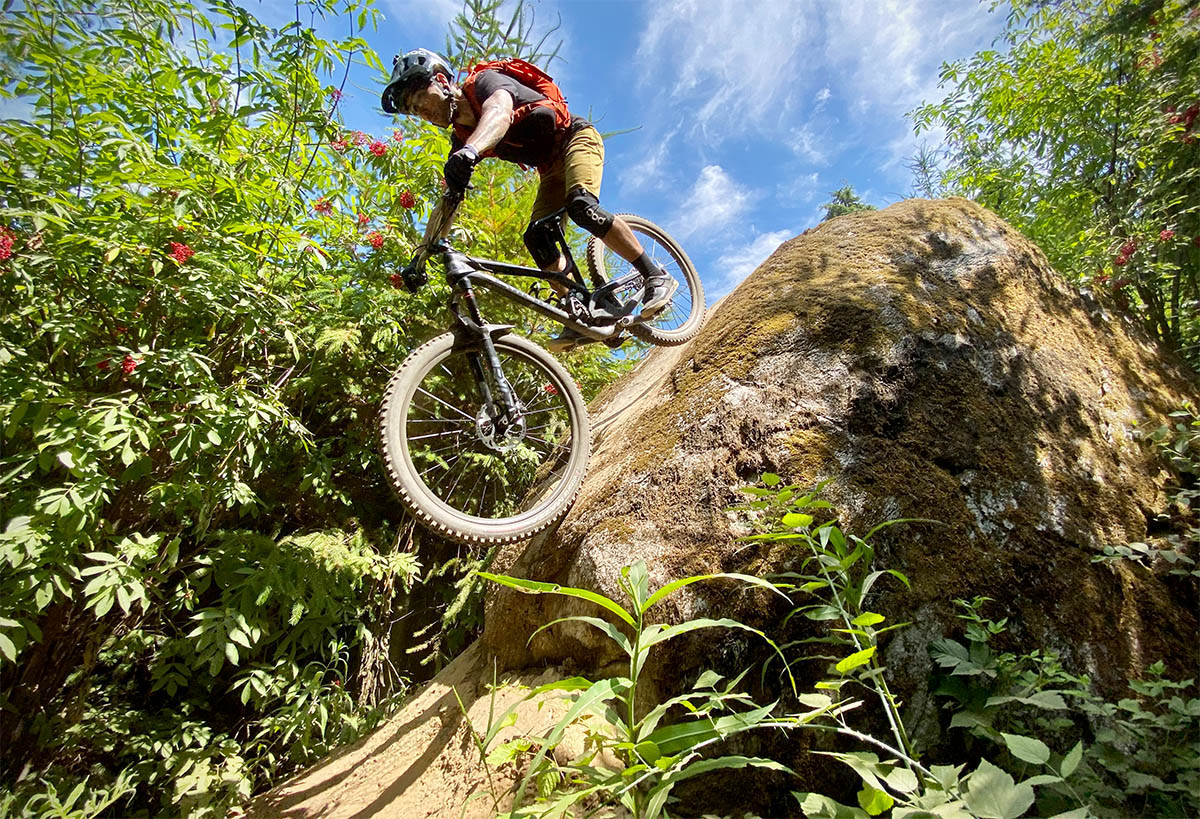
Location: Wilton, Conn.
Popular models: Trail and Scalpel
What we like: Not afraid to do things a bit differently; lightweight aluminum frames.
What we don't: The quirkiness can be polarizing.
Known for their unique approach to building and designing bicycles, Connecticut-based Cannondale has never been afraid to try new things. Some of their more noteworthy and polarizing designs over the years have been the one-sided Lefty fork and unique Headshok unit, both of which replaced standard suspension forks on some models. What truly sets Cannondale apart, however, has been their use of oversized aluminum tubing. In the 1980s, when most other companies were still building bike frames out of steel, Cannondale was taking a different approach with their lightweight alloy. Even today, the company still uses this material liberally in their lineup.
.jpg)
Once a powerhouse in the industry, Cannondale has lost some of its popularity in the last decade. For reference, in the late 90s, the Volvo Cannondale squad was one of the most sought-after and popular racing teams around, and the company sponsored accomplished athletes like Brian Lopes and Missy Giove in their heyday. But Cannondale seemed to lose its way (and market share) in the decade that followed. That said, if you’re tuned into the world of mountain biking, you might have noticed that Cannondale has started to reinvent themselves of late. For example, the company launched a strikingly normal-looking mountain bike, the Habit. (The Habit HT 2 is our team's hardtail pick for the best budget mountain bike.) while we love the look of the latest Habit, we personally hope that Cannondale retains some of the quirkiness that it was once known for. The good news is they’re doing just that with their latest Scalpel XC race bike and Topstone Lefty gravel grinder.
.jpg)
Location: Bloomington, Minn.
Popular models: Timberjack and Blackthorn
What we like: Their bikes are centered around adventure and constantly have us daydreaming about our next trip.
What we don't: Short two- to five-year warranty, depending on the model.
Salsa’s humble beginnings can be traced back to a Northern California garage in the early 1980s. And while they may have been bought by distribution giant Quality Bicycle Products in 1997, Salsa’s no-frills approach is as strong as ever. Perhaps best known for their bikepacking and adventure-focused models, like the time-tested Fargo and Tour Divide-winning Cutthroat, Salsa also offers a comprehensive range of more traditional mountain options. One of their more popular models comes in the form of a hardtail, known as the Timberjack, which can be set up with frame bags for backcountry overnights or stripped down for singletrack.
.jpg)
Salsa Cycles has found a bit of a niche in the industry, catering more to backcountry explorers than those fixated on Strava KOMs. As with the Timberjack above, most of their offerings come equipped with mounting locations for bags, bottles, or extra supplies. And no matter what model you’re looking at, one thing remains clear: Salsa’s bikes are focused on getting you off the beaten path. If there’s one brand that has me daydreaming of our next big adventure above all others, it’s Salsa Cycles.
.jpg)
Location: Ferndale, Wash.
Popular models: Process and Honzo
What we like: A no-frills company with competitive pricing that prioritizes fun over all else.
What we don't: Limited online availability.
In our opinion, Washington-based Kona has achieved a sweet spot that few other brands have: They’re large enough to offer bikes for all ability levels, yet small enough to remain connected to the riding community and stay true to their roots. Founded in 1988 in Vancouver, Kona has always been more about fun than anything else. Perhaps one of their most popular models over the years has been the Stinky lineup (late ‘90s to early 2000s)—this 130mm-travel “freeride” bike was well ahead of its time. We have fond memories of riding the Whistler Bike Park and North Shore trails aboard that shiny, bright chrome-and-red bike.
Kona hit a bit of a lull while focusing on pavement-oriented bikes in the past, and in January of 2022 the original owners sold the company to Kent Outdoors. By April of 2024, Kent was reducing operations and planned to sell again or retire the brand entirely. In May, just one month later, two of the three founding owners, Dan Gerhard and Jacob Heilbron, repurchased Kona and are now breathing new life into the brand with new mountain and gravel bike models. Through it all, the well-known full-suspension Process and hardtail Honzo models have remained staples. The two designs illustrate the company’s focus on fun, and it’s clear that their roots are tied to the Pacific Northwest—head up to Bellingham for a day and you’ll likely find one of these bikes out on the trail. Beyond mountain bikes, Kona also has a number of other styles in their lineup, including everything from fat bikes to commuters. nd similar to other major brands on this list, Kona offers a lifetime warranty on all bike frames (excepting carbon models) produced after 2009.
.jpg)
Location: Kent, Wash.
Popular models: DRT 1.1, DRT 1.3, and DRT e1.1
What we like: Reasonably priced models with a focus on beginner and intermediate riders.
What we don't: A bit dated in both design and geometry.
REI’s Co-op Cycles went through a major rebranding effort in late 2016 and is now more dirt-focused than ever before. Formerly known as Novara, the in-house brand was well regarded in the urban and traditional road-cycling community, and their bikes typically costed less than the competition while using similar-quality parts. Today, Co-op Cycles boasts a sizable selection of both kid and adult models—from road to adventure to mountain bikes—that start at $629 for the entry-level DRT 1.1 mountain bike and go all the way up to the high-end electric DRT e3.1 for $4,999.
Perhaps the biggest news about Co-op Cycles since its launch was the reintroduction of a full-suspension bike into their lineup. The DRT 3.3 features 27.5+ or 29-inch tires and 120-130mm of travel (depending on size). We spent a day riding one of these new rigs and were pleasantly surprised by how composed and competent it felt on our local trails. This bike is currently listed as "discontinued" on REI's site, but we've reached out to them to inquire about their full-suspension lineup. And while Co-op Cycles is certainly appealing from a value perspective, their bikes are slightly behind the times and a bit dated when it comes to geometry and design—though each year seems to bring promising improvements.
.jpg)
Location: Hausen, Germany
Popular models: Capra and Jeffsy
What we like: Direct-to-consumer model delivers amazing bang for your buck.
What we don't: There are inherent challenges and risks in working with an online-only company.
YT Industries was one of the first direct-to-consumer companies to enter the U.S. bike market and has remained extremely popular ever since. Known for producing quality bikes with high-end parts for exceptionally low prices, the German-based brand has triggered an onslaught of “support-your-local-bike-shop” debates. But arguments aside, it’s hard to ignore the value that brands like YT, Canyon, and Polygon provide. If you’re looking to score the best bike for your money, it’s almost impossible not to be tempted by their low prices, which regularly undercut the brick-and-mortar competition by hundreds (if not thousands) of dollars.
While getting a great deal on a bike is always a plus, there are inherent sacrifices that come with buying from a consumer-direct brand. We haven't had any personal negative experiences, but we’ve heard reports of subpar customer service and long turnaround and wait times for warranty claims. Plus, you lose the convenience and satisfaction of walking into your local bike shop and buying replacement parts directly off the shelf. Nevertheless, if you’re simply looking to get the most bang for your buck, then going consumer-direct is an intriguing option.
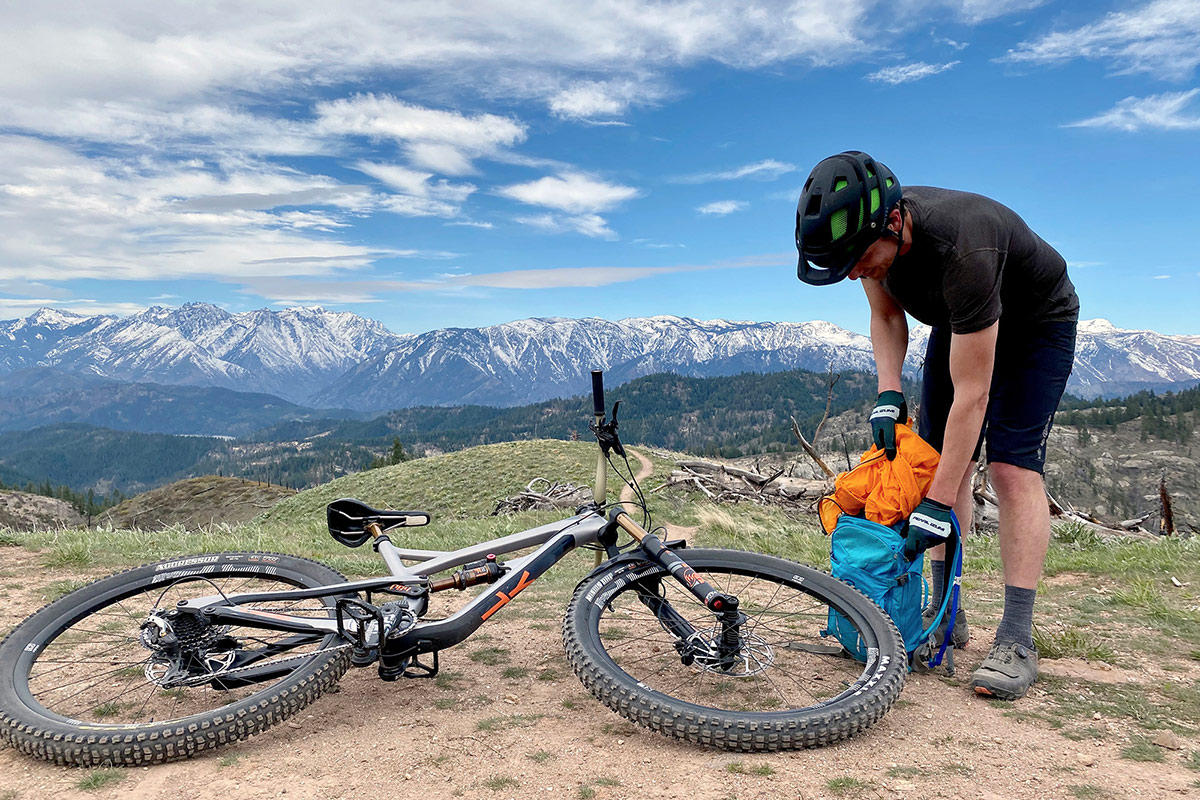
Location: Petaluma, Calif.
Popular models: Rift Zone and San Quentin
What we like: Fun, well-made bikes for reasonable prices; fairly available online.
What we don’t: Doesn’t compete at the premium end of the market.
The roots of Marin Bikes are tangled with the roots of mountain biking itself. In fact, the company’s founder, Bob Buckley, was part of the crew of Marin County, Calif., riders who first experimented with fat tire bikes and more sturdy frames for bumping down mountains in the late 1970s and early ‘80s. Marin’s first mountain bike, the Madrone Trail, launched in 1986, and the brand continued to innovate through the following decades, with one of the industry’s first mass-produced titanium mountain bikes and early full-suspension models.
.jpg)
Marin expanded into other types of bikes over the years, their presence in the industry growing and fading, but today they stand out for their focus on producing relatively affordable bikes that feature modern geometry and well-thought-out component groups. For example, as an entry-level full-suspension trail bike, their Rift Zone 1 offers a sturdy frame, geometry slack enough for comfortable descents and also competent climbs, a solid-quality drivetrain, and a capable suspension. The price: $1,699. Similarly, the hardtail San Quentin 1—at just $959—is an aggressive build that can keep up with bikes two or three times its price on the downhill. And like more high-end brands, Marin stands behind their products with a lifetime warranty on rigid frames and forks, a five-year warranty on carbon-fiber frames and forks, and a five-year warranty on full-suspension frames.
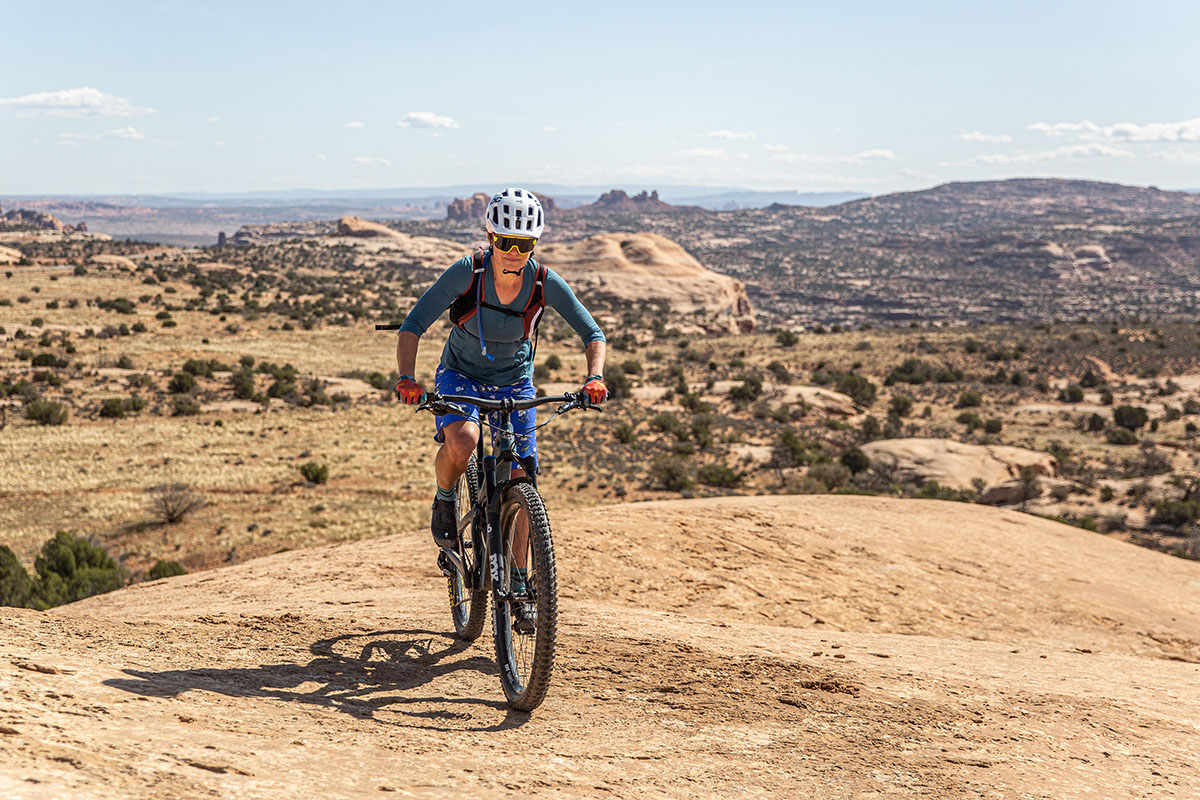
Location: Koblenz, Germany
Popular models: Spectral and Neuron
What we like: Well-equipped bikes at hard-to-beat prices; offerings for riders from beginner to expert.
What we don’t: Again, there are inherent downsides to buying from a consumer-direct brand.
Consumer-direct powerhouse Canyon pioneered the model that’s now taken over much of the bike market: Back in the dial-up days of 1996, founder Roman Arnold and his brother released their first custom-built bike over the Internet. They stayed relatively small and confined to Europe for the next two and a half decades, but entered the U.S. market in 2017. Today, the company has a healthy selection of mountain bike offerings, each of which is highly customizable, and they offer a whole lineup of e-bikes as well. But perhaps the biggest draw is Canyon's very approachable prices, which are a result of cutting out the middleman. As we saw with YT above, Canyon's prices are hard to beat for the level of build quality, particularly for beginning and intermediate riders.
As we saw with YT Industries above, the biggest downside to buying consumer-direct is the lack of in-store availability. This means you likely won’t have the luxury of testing your bike before your purchase—and finding the right fit is critical for comfort and long-term enjoyment on the trail. There will also be at least some assembly required once you receive your bike, which may prove to be a challenge for those just starting out. But again, you’d be hard-pressed to find better performance for less from the bigger players in this space, and Canyon’s offerings cover the full gamut of terrain and ability level.
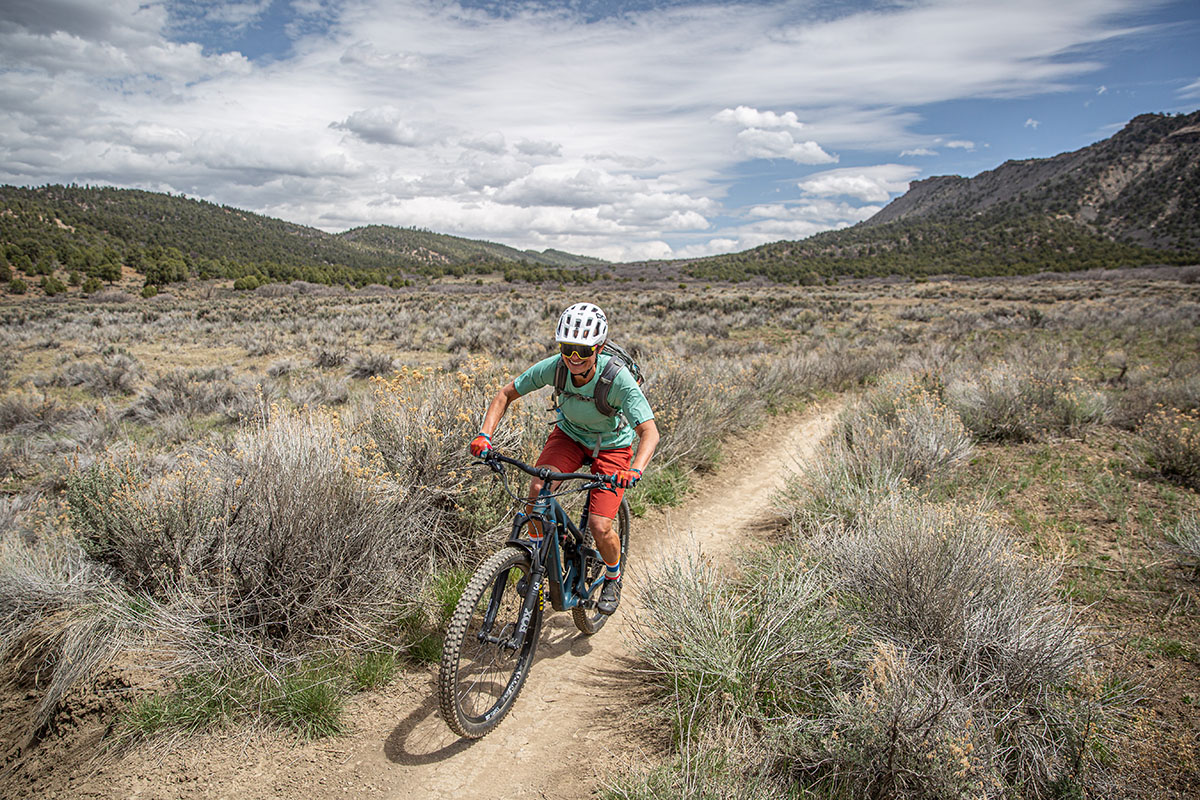
Location: Sidoarjo, Indonesia
Popular models: Siskiu and Xtrada
What we like: Quality entry- and mid-level bikes at excellent values.
What we don’t: Limited options for experienced riders and on the heavier end.
Indonesia-based Polygon is a bit of an outlier on this list. Another consumer-direct brand, Polygon undercuts the competition considerably but focuses most of their efforts on the entry-to-mid-level end of the spectrum. Their most premium non-electric offering, the $2,399 Siskiu T8, is a case in point: With a modern geometry, generous travel both up front and in the rear, and a short chainstay, the Siskiu is a highly capable rig that will meet or exceed the needs of most intermediate riders. It also comes with higher-quality components than what we typically see at this price point, earning it our vote as the best mountain bike under $2,500.
In addition to the Siskiu, Polygon’s mountain bike lineup includes quite a few other models that run the gamut from the commute-friendly Cascade (just $499) to the electric Collosus N8XE ($5,399). They also offer a handful of road and gravel bikes, all of which share the value pricing that the brand is known for. Compared to consumer-direct competitors like YT Industries and Canyon above, Polygon is considered a true budget brand, and many of their designs are a little heavier than the competition, but there’s no denying the cost savings. If you’re willing to deal with the inherent downsides to buying consumer-direct, including the fact that any spare parts will need to be shipped internationally, Polygon bikes offer an enticing mix of price and performance.
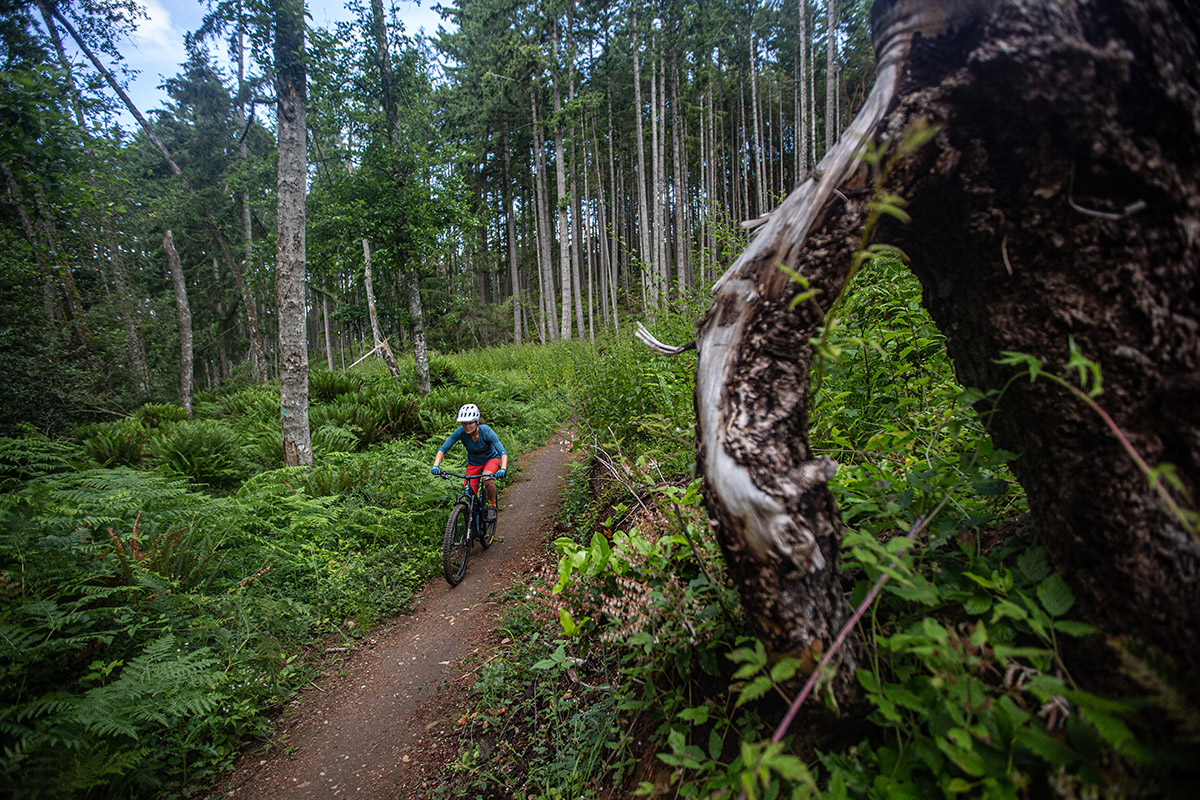
While many of the brands featured above are big, established players in the mountain bike industry, there are a growing number of small but noteworthy companies pumping out quality designs. These boutique brands often have a limited selection but carefully tailor each model to excel in its intended discipline. Bentonville, Arkansas-based Allied Cycle Works, for example, only makes four mountain bikes currently, but they've impressed us. The BC40, for example, is a lightweight XC design that also excels on rowdy singletrack. Montana-based Esker Cycles offers killer bikepacking hardtails, including The Monkey Wrench Gang-inspired Japhy and Hayduke. Golden, Colorado-based Alchemy Bikes' full-suspension Arktos lineup features beautiful designs fine-tuned for everything from speed to gnarly descents and big hits. And Revel Bikes, in Carbondale, Colorado, makes seriously excellent bikes. Like Kona above, they almost went under after a private equity sale, but then got repurchased by the original owner.
These smaller brands offer the chance to get a clearer history of where your bike came from, how it was made, and what it’s meant for. While offerings are fairly limited, they were dreamed up and crafted by bike fanatics who love the sport. This passion comes across in the form of keen attention to detail, excellent on-trail performance, and good looks to boot. Pricing is also generally competitive, although you can expect to pay a slight premium due to the lack of large-scale manufacturing. And with small teams at the helm, longer wait times are often the norm.

While the vast majority of mountain bike sales are still happening at local shops (something we fully support), purchasing a rig online is becoming more common and much easier by the year. We like Backcountry and Competitive Cyclist (which are jointly owned and share a lot of inventory) for their knowledgeable online staff, great fit tool, large selection of high-end offerings, and reasonable shipping costs. Other popular online bike retailers include Jenson USA, Chain Reaction Cycles, Evo, and Colorado Cyclist. REI Co-op, who is better known for their backpacking and camping gear, is another great source for mid-range and budget-oriented models. We like that you can order from the convenience of your home but then pick it up in the store for free—if for some reason you don’t like the color or fit of the bike, simply return it on the spot. Additionally, REI members get 10% back on full-priced items at the end of the year, which can add up if you’re buying an expensive mountain bike.
.jpg)
One final consideration for buying online is working with consumer-direct brands like YT Industries, Canyon, and Polygon. They forgo the middleman in the name of saving money and orders are placed directly through their website. These brands offer the most bang for your buck and are a great way to get a solid bike for hundreds—and sometimes even thousands—of dollars less than their competitors. And as mentioned above, working with your local bike shop may still be one of the best options out there. Their hands-on knowledge, combined with the fact that you’re able to test ride the bike before purchasing, makes for a great combination. Furthermore, should anything ever go wrong, it’s much easier to walk into a shop for advice than it is to call up an online retailer.
Back to Our Top Mountain Bike Brands See Our Mountain Biking Gear Reviews